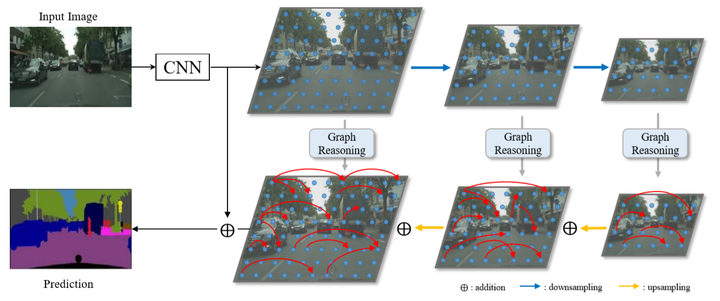Spatial Pyramid Based Graph Reasoning for Semantic Segmentation

Abstract
The convolution operation suffers from a limited receptive filed, while global modeling is fundamental to dense prediction tasks, such as semantic segmentation. In this paper, we apply graph convolution into the semantic segmentation task and propose an improved Laplacian. The graph reasoning is directly performed in the original feature space organized as a spatial pyramid. Different from existing methods, our Laplacian is data-dependent and we introduce an attention diagonal matrix to learn a better distance metric. It gets rid of projecting and re-projecting processes, which makes our proposed method a light-weight module that can be easily plugged into current computer vision architectures. More importantly, performing graph reasoning directly in the feature space retains spatial relationships and makes spatial pyramid possible to explore multiple long-range contextual patterns from different scales. Experiments on Cityscapes, COCO Stuff, PASCAL Context and PASCAL VOC demonstrate the effectiveness of our proposed methods on semantic segmentation. We achieve state-of-the-art performance with advantages in computational and memory overhead.